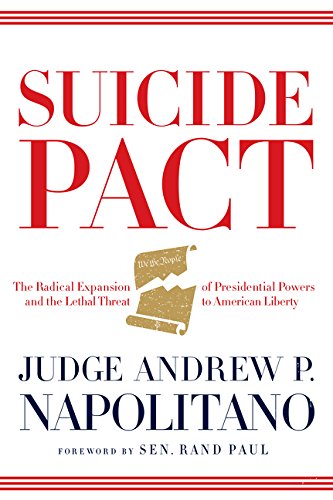
IPFS News Link • WAR: About that War
War and the Separation of Powers
• LewRockwell.Com - Andrew NapolitanoUsually, they answer that it's the clauses that guarantee the freedom of speech, privacy and due process.
Yes, each of those guarantees — if upheld — is vital to restraining government, but the overarching and most important unique aspect of the Constitution is the separation of powers. The constitutions of many totalitarian countries pay lip service to free speech, privacy and due process, but none has the strict separation of powers that the U.S. does.
Under our Constitution, the Congress writes the laws, the president enforces them and the courts interpret them; and those powers and functions may not constitutionally be mixed or exchanged. The Congress also declares war. The president also wages war. The courts also invalidate the acts of the other two branches when they exceed their constitutional powers.
The Supreme Court has ruled that the separation of powers is integral to the Constitution not to preserve the prerogatives of each branch of government but to divide governmental powers among the branches so as to keep power diffused — and thereby limited and protective of personal freedom. Suicide Pact: The Radi...Andrew P. NapolitanoBest Price: $1.50Buy New $3.94(as of 08:25 EDT - Details)
Suicide Pact: The Radi...Andrew P. NapolitanoBest Price: $1.50Buy New $3.94(as of 08:25 EDT - Details)
James Madison, who wrote the Constitution, wanted not only this diffusion by separation but also tension — even jealousy — among the branches so as to keep each in check.
Thus, even if one branch of government consented to ceding an essential power to another branch, such a giveaway would be unconstitutional, the Supreme Court has ruled, because the core functions of each branch of the federal government may not be delegated away to either of the other two without violating the separation of powers.
I am writing about this not as a history or constitutional law mini-lesson but rather because it's necessary background information to address a real and contemporary problem. Two weeks ago, on the basis of evidence so flimsy that his own secretary of defense rejected it — and without any legal or constitutional authority — President Donald Trump dispatched 110 missiles to bomb certain military and civilian targets in Syria, where the president argued the Syrian government manufactured, stored or used chemical weapons.































